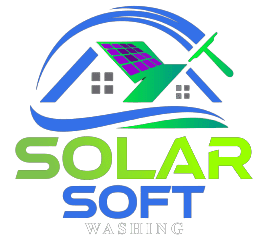What is Lichen?

Lichen Build-Up On Solar Panels
Posted on January 22nd, 2023
Lichen can build up on solar panels when spores from the lichen's reproductive structures, called "apothecia," are carried by wind or animals and settle on the surface of the panels. Lichen can also colonize solar panels when the conditions are suitable for their growth, such as in areas with high humidity and low light levels. Lichens have the ability to shut down, allowing them to tolerate extreme desiccation in a dormant state. They recover quickly when conditions improve, restarting photosynthesis and growth.
Lichen is a composite organism consisting of a fungus and algae or cyanobacteria. The fungus provides a protective structure and absorbs moisture and nutrients from the environment, while the algae or cyanobacteria provide food through photosynthesis. Lichen can grow on many surfaces, including rocks, trees, and buildings, and they are known to colonize surfaces that are not frequently disturbed or cleaned.
On solar panels, lichen growth can reduce the amount of sunlight that reaches the photovoltaic cells, which can lower the panels' efficiency and reduce their power output. Lichen can also cause physical damage to the panels if their structures penetrate the surface and create cracks or scratches.
To prevent lichen build-up on solar panels, regular cleaning and maintenance is recommended. This can involve using a soft brush (preferably one designed specifically for roll tempered, solar glass) to gently scrub the surface of the panels with water that has been filtered through reverse osmosis and then deionized. If the lichen growth is severe, cleaning with a biodegradable sodium hypochlorite solution may be necessary to remove the buildup without damaging the panels.
It is recommended to apply a coating immediately after the remediation of the problem to protect the modules. This will seal the glass and any future growth of lichen will not be bonded to it so strongly making them easier to remove. The hydrophobic (water repellent) coating provides antistatic properties to the solar glass, thus reducing dust adhesion, keeping it less-soiled between cleanings, increasing the efficiency of the next wash as well as increasing irradiance on rainy days.
Get In Touch
Contact Form
Get in touch to discuss with us how we can best assist you.

